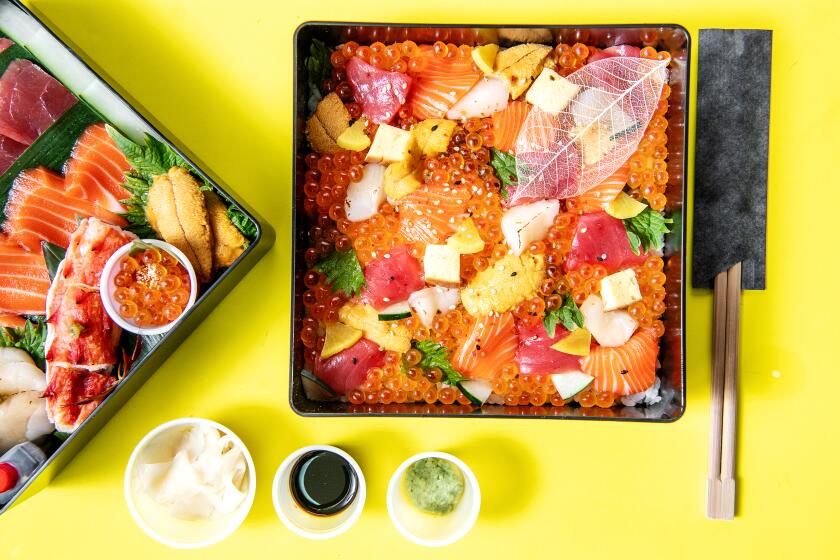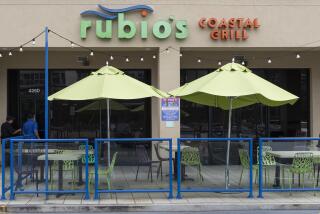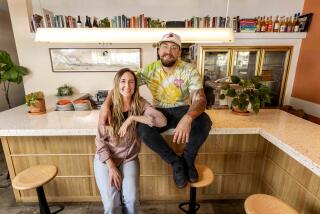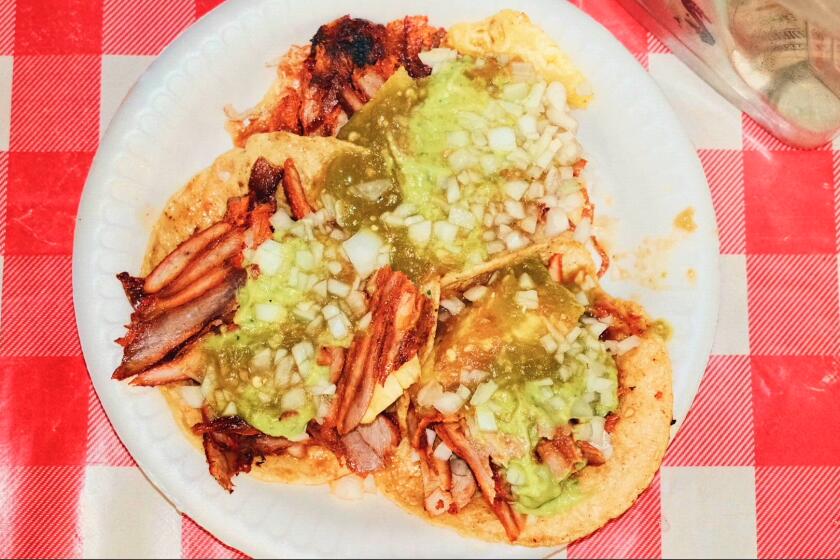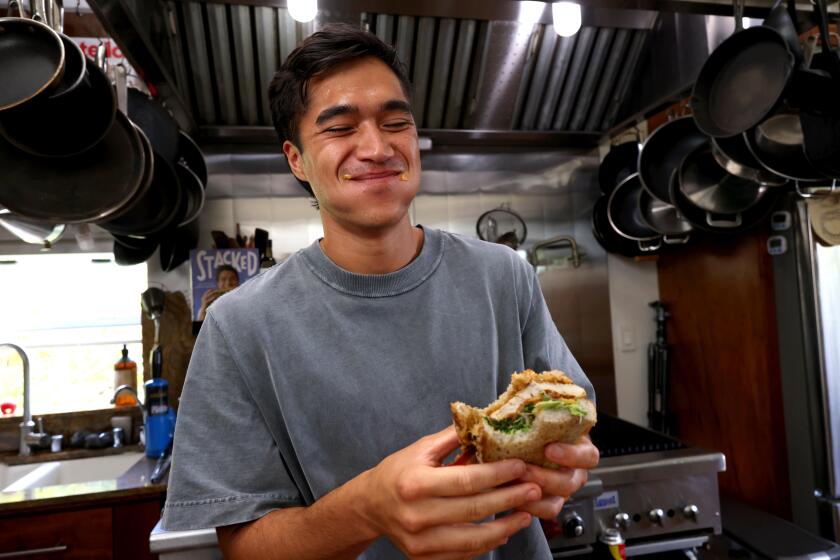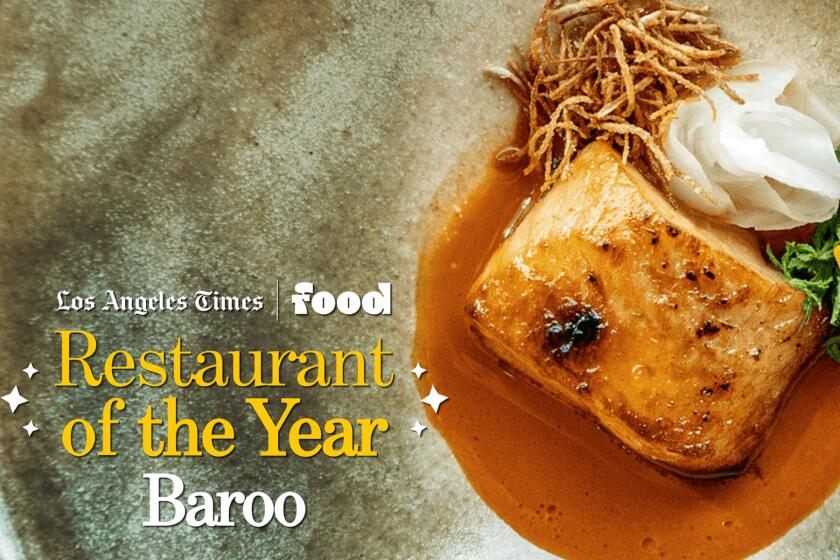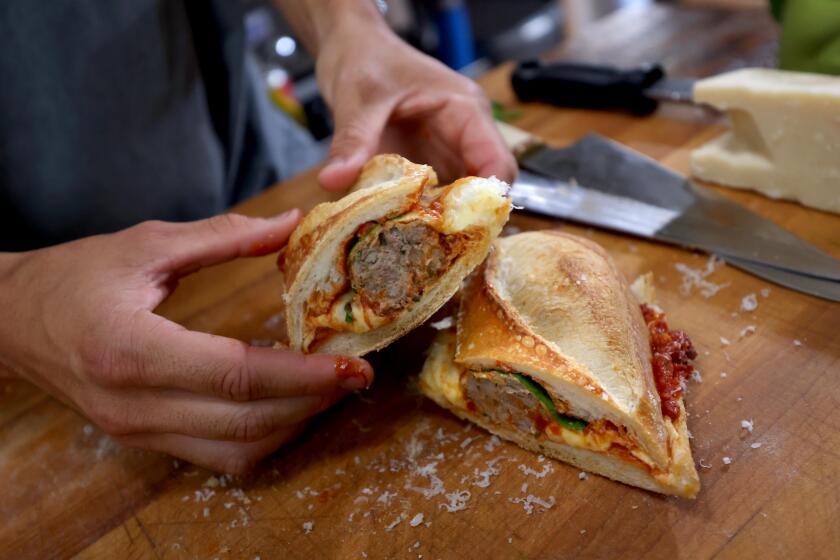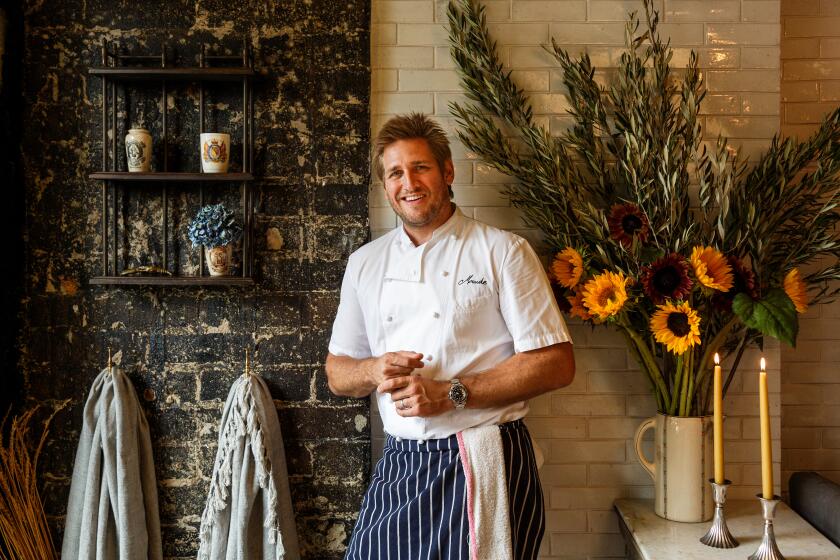Then the pandemic hit. New restaurants change plans but not dreams
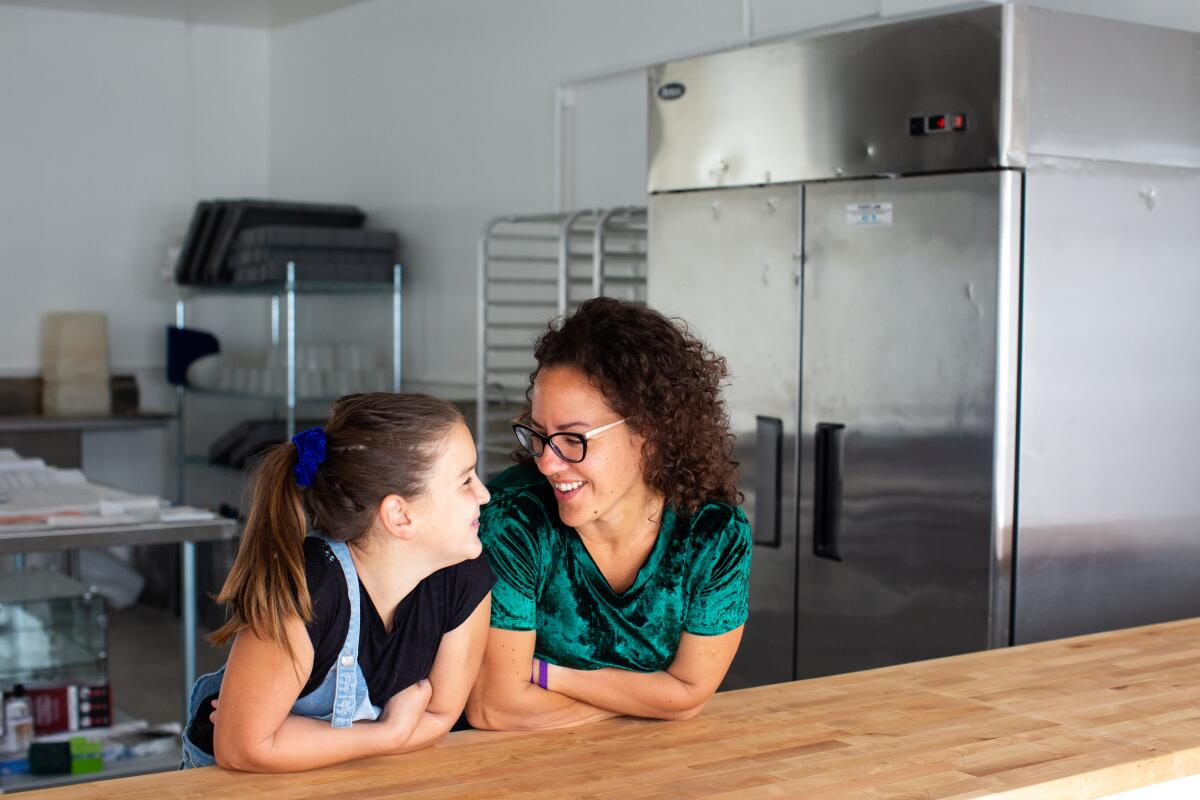
For 10 years, Shoshanah Abraham whipped up her famous buttercream frosted cake for weddings and corporate events, creating a business from her home kitchen one teaspoon at a time. With business outgrowing her home, the 34-year-old decided to open her own bakery in Long Beach, Getting Caked.
Abraham found a small but spacious shop on Wardlow Road, glistening with potential and fresh paint, and planned to open it in February. The economy seemed rosy then, the future optimistic.
Then, as the now-familiar saying goes, the pandemic hit.
What does the birth of a restaurant look like these days? Some first-time restaurateurs, with determination and creativity, are showing how to navigate this extraordinarily difficult time.
When Abraham moved to California eight years ago, she began baking for friends and neighbors, creating from scratch a network of customers. Pretty soon, she left her stressful corporate auditing job to spend more time in her happy place: the kitchen, enshrouded in a cloud of flour. Her business flourished, inspiring her to put her hard-earned savings last fall into the shop and top-of-the-line kitchen equipment.
“I sank everything into it,” she said.
Despite the challenges, many small businesses are forging ahead. Christine Bos, government affairs manager for the Long Beach Area Chamber of Commerce, said the pace of new business openings hasn’t slowed much since pandemic-related shutdowns and disruptions began in March.
For many restaurant owners, their attention is focused on readying a pandemic-proof business.
Abraham had planned to open the bakery in February but a few last-minute tweaks postponed her opening until March.
Then later and later. The closure of City Hall dragged out her permit processing. Equipment took a while to arrive. Large events, such as weddings and corporate gatherings, were canceled, cutting off a main revenue stream for her baking. At the same time, her other part-time gigs — teaching a motorcycle course, managing a podiatry clinic, conducting market research — dried up.
“There have been moments when I want to walk away,” she said.
There was one bright spot, though. A few weeks before the pandemic, she met someone special: Jonathan Magnusson-Gumm, who worked for her contractor. Their romance blossomed during quarantine as the two shared many of their days together — and their dreams of starting a small business. Soon Abraham and Magnusson-Gumm decided to combine forces: The oven will churn out baked sweets from morning until early afternoon, and then pizza dough until nighttime.
Magnusson-Gumm demurs at the suggestion that a pandemic-induced recession is a bad time to start a business.
“This is not an economic thing for me. All it is is being in alignment with what I feel is right,” he said.
“If it’s well received, it’s well received. If it’s not, then guess what, I get to walk away knowing I got to share my beliefs and my dreams.”
But it’s not all ganache roses and pizza pie.
With indoor dining prohibited, the shop won’t look exactly how Abraham envisioned. Any recent restaurant-goer has noticed the changing look of eating out: paper or QR-code menus, masked servers and single-use containers aplenty. Some new businesses are brainstorming how to embed the changing guidelines into their new spaces.
Talented chefs are supporting themselves by starting takeout services.
The bricks-and-mortar opening of chef Soozee Nguyen’s vegan restaurant the Wild Chive was supposed to be a family affair for longtime fans of the beloved Long Beach pop-up. Instead, with large gatherings prohibited, Nguyen threw a “grand ‘takeout’ opening” in June.
“Strategically, this pandemic has affected our every move. It’s hard to go big on a long-awaited launch during a time that has proven to be so unpredictable,” Nguyen wrote in an email. “We’ve had to carefully plan out our days in order to establish a suitable rhythm of operating.”
That includes developing a menu curated specifically for takeout and delivery with dishes that Nguyen said would travel well.
The Wild Chive is in a stylish, spacious building on Broadway with high-top bars lining the windows and long, community-style tables. In reimagining the space for a pandemic setup, Nguyen designed a one-way path from the host stand at the door to the exit in the back, for seamless, contactless pickup.
“Every decision weighs heavily on what’s happening around us, and since it’s ever-changing, so are we,” she said.
The Wild Chive offers only weekend brunch, with hopes of expanding to dinner service soon. Nguyen’s plans for live music, featured work from local artists and special ticketed dinner and drink events are on hold.
“I wouldn’t say any of our restaurants are saying that they’re ... having great business,” Bos said. “I think they’re meeting the basic bottom line, at the most.”
A few months ago, Arturo Enciso’s Gusto Bread, which he operated from his North Long Beach home, had a line of customers down the block for Sunday sales. His farmers market stand sold out in minutes. In May, Food & Wine magazine named Gusto Bread one of the nation’s best 100 bakeries.
Like Abraham, Enciso thought 2020 would be the perfect year to finally open a restaurant. Unemployment was low and the economy was flush with cash.
To get to Gusto Bread, the Long Beach bakery that specializes in breads made with whole grains and natural levain, knock on the door of an old wooden house on a leafy, residential street, the front porch filled with cozy chairs and the earthy, nearly primal perfume of baking.
While other restaurants struggled to adapt to contactless food sales, Gusto Bread, which is still operating out of Enciso’s home, was already accustomed to offering pickup and delivery options. In fact, though sales to wholesale customers such as restaurants and grocery stores dropped off, retail sales boomed.
All he needed was a $275,000 Small Business Administration loan.
“At one point we were told, ‘You better submit this; you have one day or you might not get the funds you wanted or you needed,’” Enciso recalled. “That was a little scary because we were really depending on those funds.”
The funds eventually came through. For Enciso, like any other restaurateur these days, it was yet another pandemic-era hurdle.
If a business is able to get through this moment, Abraham said, “You’ll be pretty solid.”
More to Read
Eat your way across L.A.
Get our weekly Tasting Notes newsletter for reviews, news and more.
You may occasionally receive promotional content from the Los Angeles Times.
